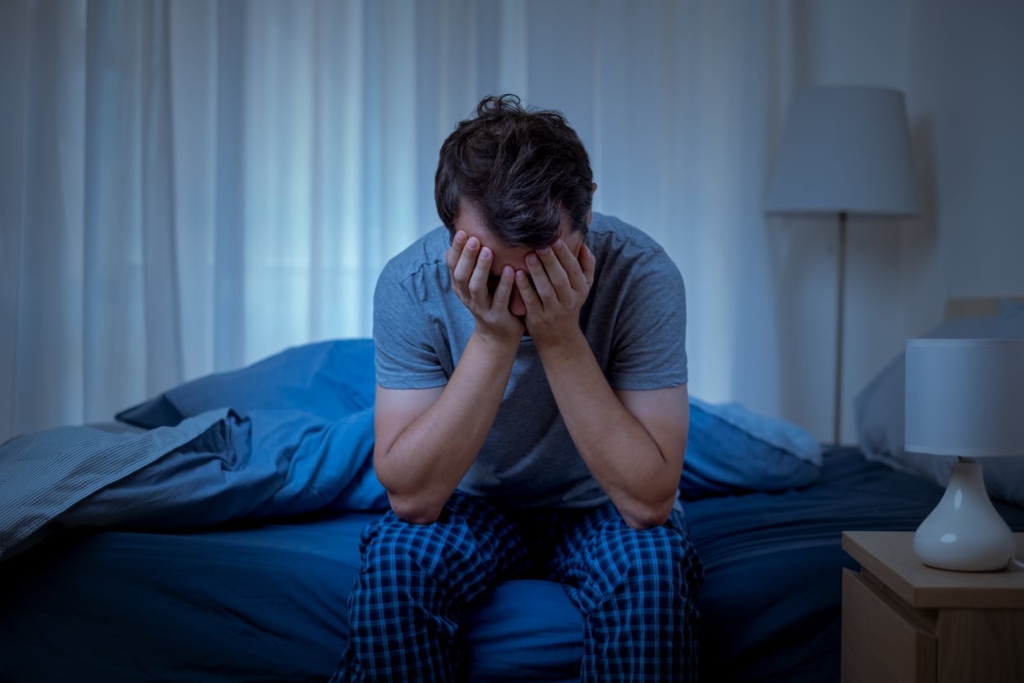7 Common Reasons You're Waking Up in The Night

Have you ever awoken in the middle of the night and been unable to return to sleep? You're not the only one who feels this way. One-third of Americans say they have trouble sleeping at least a few evenings a week. There are a variety of reasons why individuals wake up in the middle of the night, and we'll go through a few of the most prevalent ones in this blog post. If you're having trouble sleeping, it's critical to figure out what's causing it so you can find a solution.
Anxiety
Many people experience anxiety at some point in their lives, and for some, it can be a chronic condition. Anxiety can manifest in many different ways, including racing thoughts, difficulty concentrating, and excessive worry. For many people, anxiety can also lead to insomnia or irregular sleep patterns. This is often because anxiety can cause restless nights and make it difficult to fall or stay asleep. Anxiety can also lead to physical symptoms like a racing heart or shortness of breath, which can further disrupt sleep. If you're struggling to sleep due to anxiety, there are several things you can do to ease your symptoms. Practice relaxation techniques such as deep breathing or progressive muscle relaxation. Exercise regularly to help reduce stress and promote better sleep. Avoid caffeine and alcohol before bed, as they can aggravate anxiety and make it harder to sleep.
Vitamin D Deficiency
Vitamin D is an essential nutrient that helps the body absorb calcium and phosphorus. It also plays a role in immune function and cell growth. Vitamin D deficiency can lead to a number of health problems, including bone loss, muscle weakness, and increased risk of infection. Vitamin D deficiency can also be a contributing factor to sleep problems. Research suggests that vitamin D deficiency is associated with insomnia, restless leg syndrome, and sleep apnea.
Sleep Apnea
Sleep apnea is a medical condition that can make it difficult to get a good night's sleep. The condition is characterized by abnormally low levels of oxygen in the blood during sleep. Sleep apnea can occur for a variety of reasons, but one of the most common is obstructive sleep apnea. This type of sleep apnea occurs when the airway becomes blocked, preventing air from flowing into the lungs. Sleep apnea can also be caused by lifestyle choices, such as smoking or drinking alcohol.
Overactive Thyroid
Overactive thyroid is a medical condition that can be caused by a number of different things. One of the most common symptoms of overactive thyroid is insomnia, or the inability to sleep. This can be caused by a number of different things, including anxiety, stress, and an overabundance of thyroid hormone in the body. While there are a number of different treatments for overactive thyroid, one of the most important things you can do is to get enough rest. This means making sure you go to bed at a reasonable time each night and getting up at a reasonable time each morning. It also means avoiding caffeine and other stimulants before bedtime.
Eating Before Bed
Eating before bed is often cited as a major reason why people have difficulty sleeping. The thinking goes that when you eat, your body has to work to digest the food, which can lead to increased alertness and energy. However, there is actually very little evidence to support this claim. While it is true that digestion does require some energy from the body, it is not enough to significantly impact sleep.
Drinking
Drinking alcohol before bedtime interferes with the quality of sleep and leads to less restful sleep. Drinking also dehydrates the body and can cause headaches, which can further disrupt sleep. In addition, alcohol consumption can lead to snoring and other sleep disturbances. If you are having trouble sleeping, it is best to avoid drinking alcohol altogether.
Insomnia
Insomnia is a common sleep disorder that can make it difficult to fall asleep, stay asleep, or both. Insomnia can be short-term (acute) or can last a long time (chronic). Insomnia can also be a symptom of another medical or mental health condition, such as depression or anxiety. Insomnia can cause serious problems with your daily life and health. It can make you feel tired during the day, make it hard to concentrate, and lead to other problems such as depression, anxiety, irritability, and accidents. Insomnia can also take a toll on your relationships, work life, and social life. If you're struggling with insomnia, there are things you can do to improve your sleep. You can start by making some changes to your sleep habits and environment. You may also need to see a sleep specialist for help with more severe Insomnia is a common sleep disorder that can make it difficult to fall asleep, stay asleep, or both. Insomnia can be short-term (acute) or can last a long time (chronic). Insomnia can also be a symptom of another medical or mental health condition, such as depression or anxiety.



